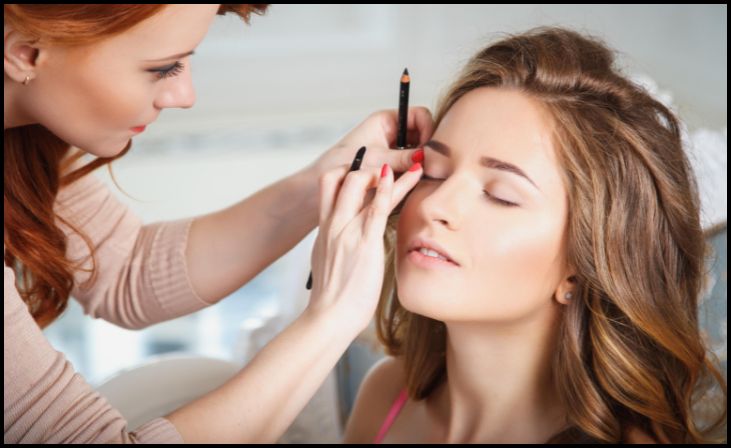Collagen, the most abundant protein in our bodies, is crucial for maintaining the youthful appearance and elasticity of our skin. As we age, however, collagen production naturally declines, leading to wrinkles, sagging, and dullness. Fortunately, there are several ways to boost collagen production and promote healthier, more vibrant skin. In this blog post, we’ll explore five effective methods to enhance collagen production and maintain youthful skin.
1. Maintain a Healthy Diet

A balanced diet rich in nutrients plays a significant role in supporting collagen production. Incorporating foods that are high in vitamin C, amino acids, and antioxidants can help promote collagen synthesis and protect existing collagen from damage. Some collagen-boosting foods include:
- Citrus Fruits: Oranges, lemons, and grapefruits are excellent sources of vitamin C, which is essential for collagen synthesis.
- Leafy Greens: Spinach, kale, and Swiss chard are packed with vitamins, minerals, and antioxidants that support collagen production.
- Bone Broth: Rich in amino acids such as glycine and proline, bone broth can help stimulate collagen production and improve skin elasticity.
- Berries: Blueberries, strawberries, and raspberries contain antioxidants that combat free radical damage and promote collagen synthesis.
- Omega-3 Fatty Acids: Found in fatty fish like salmon and mackerel, as well as walnuts and flaxseeds, omega-3 fatty acids help maintain skin hydration and elasticity.
By incorporating these collagen-boosting foods into your diet, you can provide your body with the nutrients it needs to support healthy skin from within.
2. Hydrate Your Skin

Proper hydration is essential for maintaining skin health and promoting collagen production. When your skin is dehydrated, it can become dry, dull, and more prone to wrinkles. Drinking an adequate amount of water each day helps keep your skin hydrated from the inside out. Additionally, using hydrating skincare products, such as moisturizers and serums containing hyaluronic acid, can help attract and retain moisture in the skin, improving its elasticity and suppleness.
3. Protect Your Skin from UV Damage

Excessive sun exposure can accelerate collagen breakdown and lead to premature aging of the skin. UV rays damage collagen fibers and trigger the production of enzymes that break down existing collagen. To protect your skin from UV damage and preserve collagen levels, it’s essential to practice sun safety measures, including:
- Wearing Sunscreen: Apply a broad-spectrum sunscreen with an SPF of 30 or higher every day, even on cloudy days.
- Seeking Shade: Limit your time in direct sunlight, especially during peak hours between 10 a.m. and 4 p.m.
- Wearing Protective Clothing: Cover up with hats, sunglasses, and lightweight clothing to shield your skin from the sun’s harmful rays.
By protecting your skin from UV damage, you can help maintain collagen levels and prevent premature aging.
4. Incorporate Collagen-Boosting Skincare Products

In addition to a healthy diet and sun protection, incorporating collagen-boosting skincare products into your daily routine can help enhance collagen production and improve skin texture. Look for products that contain ingredients known to stimulate collagen synthesis, such as:
- Retinoids: Retinoids, including retinol and prescription-strength retinoids like tretinoin, can increase collagen production and reduce the appearance of wrinkles.
- Vitamin C: Topical vitamin C serums can help boost collagen synthesis and protect the skin from oxidative stress.
- Peptides: Peptides are short chains of amino acids that can penetrate the skin and stimulate collagen production.
- Growth Factors: Growth factors are proteins that signal cells to produce collagen and elastin, promoting skin repair and regeneration.
Incorporating these collagen-boosting ingredients into your skincare routine can help rejuvenate your skin and maintain a youthful complexion.
5. Consider Professional Treatments

For more significant collagen-boosting results, consider incorporating professional treatments into your skincare regimen. Some effective treatments for stimulating collagen production include:
- Microneedling: This minimally invasive procedure uses fine needles to create micro-injuries in the skin, stimulating collagen production and improving skin texture.
- Laser Therapy: Laser treatments, such as fractional laser resurfacing, can stimulate collagen synthesis and improve skin tone and texture.
- Chemical Peels: Chemical peels exfoliate the outer layer of the skin, promoting collagen production and reducing the appearance of wrinkles and pigmentation.
Consult with a dermatologist or skincare professional to determine which treatments are best suited to your skin type and concerns.
In conclusion, maintaining healthy collagen levels is essential for preserving youthful skin and preventing premature aging. By incorporating a nutritious diet, hydrating your skin, protecting it from UV damage, using collagen-boosting skincare products, and considering professional treatments, you can support collagen production and enjoy healthier, more radiant skin for years to come.
